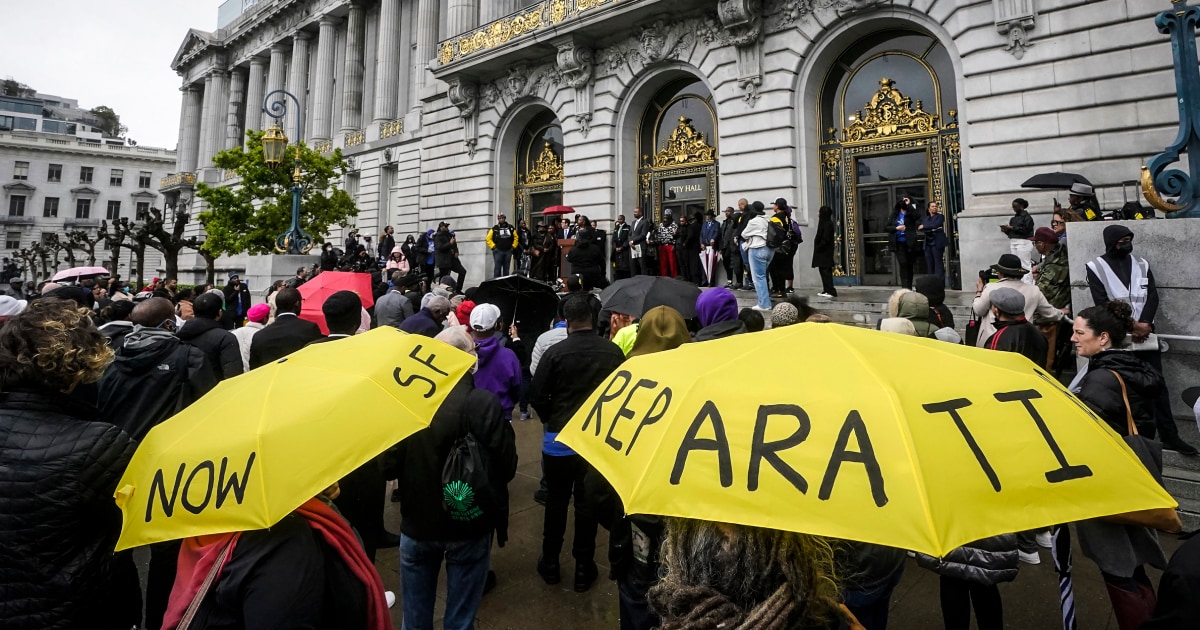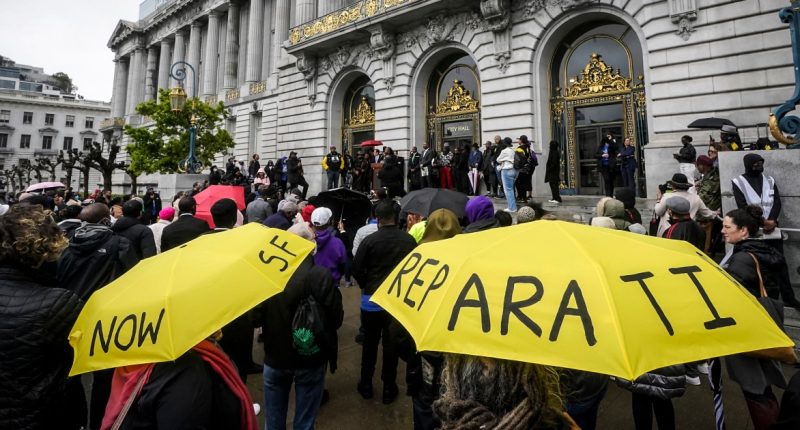
SAN FRANCISCO — California’s Legislative Black Caucus released a slate of reparations bills to implement ideas from the state’s landmark task force on the issue. The proposals include potential compensation for property seized from Black owners, but do not call for widespread direct cash payments to descendants of enslaved Black people.
If approved, the proposals would expand access to career technical education, fund community-driven solutions to violence and eliminate occupational licensing fees for people with criminal records. Another proposal would pay for programs that increase life expectancy, better educational outcomes or lift certain groups out of poverty.
Some of the measures would require amending the state constitution and are likely to face opposition. In 2022, the Democrat-controlled state Senate voted down a proposal to ban involuntary servitude and Democratic Gov. Gavin Newsom has resisted restricting solitary confinement for prison inmates.
State Sen. Steven Bradford, D-Gardena, said at a news conference Thursday that the Black caucus’ priority list does not preclude individual lawmakers from introducing additional reparations legislation. He cautioned that the journey will be long and difficult, but worth it.
“This is a defining moment not only in California history, but in American history as well,” said Bradford, who served on the nine-person state task force on reparations.
But the 14 proposals are already drawing criticism from advocates who don’t think they go far enough.
Chris Lodgson, an organizer with the Coalition for a Just and Equitable California, which pushed to create the reparations task force, said the proposals are “not reparations.”
“Not one person who is a descendant who is unhoused will be off the street from that list of proposals. Not one single mom who is struggling who is a descendant will be helped,” he said. “Not one dime of the debt that’s owed is being repaid.”
California entered the union as a free state in 1850, but in practice, it sanctioned slavery and approved policies and practices that thwarted Black people from owning homes and starting businesses. Black communities were aggressively policed and their neighborhoods polluted, according to a groundbreaking report released as part of the committee’s work.
For more from NBC BLK, sign up for our weekly newsletter.
Source: | This article originally belongs to Nbcnews.com










